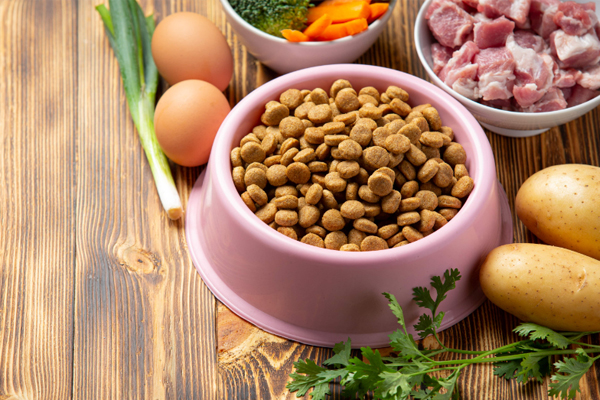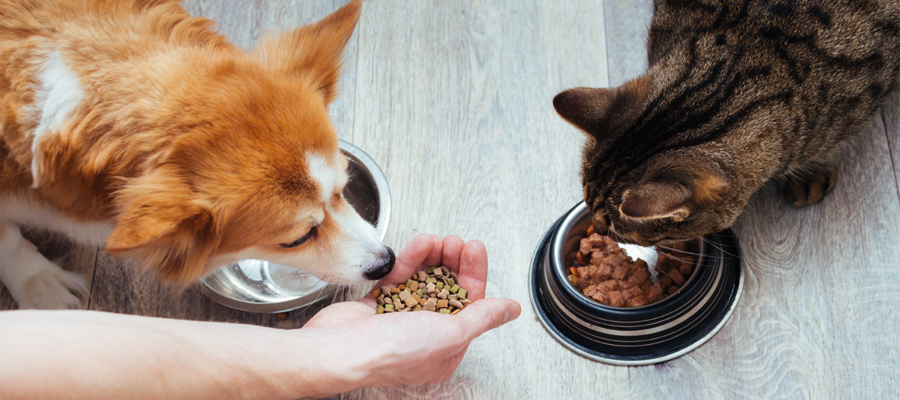Just like humans, pets require a balanced and nutritious diet to thrive and lead healthy lives. This article explores the significance of nutrition in the well-being of pets and the impact it has on their overall health.
The Basics of Pet Nutrition:
Pet nutrition involves providing the essential nutrients that support their growth, energy levels, and overall health. These nutrients can be broadly categorized into six main groups:
1. Proteins: Essential for muscle development and repair, proteins are crucial for pets of all ages. Sources include meat, fish, eggs, and plant-based alternatives.
2. Fats: Fats are a concentrated source of energy and play a key role in maintaining healthy skin, coat, and organs. Omega-3 and omega-6 fatty acids are particularly important for promoting good skin and coat health.
3. Carbohydrates: While not as essential as proteins and fats, carbohydrates provide a source of energy for pets. Grains, vegetables, and legumes are common sources of carbohydrates.
4. Vitamins: Essential for various physiological functions, vitamins are crucial for the overall health of pets. Each vitamin serves a specific purpose, and a deficiency can lead to various health issues.
5. Minerals: Minerals, such as calcium, phosphorus, and magnesium, are vital for bone health, teeth development, and overall body function.
6. Water: Adequate water intake is essential for hydration, digestion, and regulation of body temperature. Always ensure that your pet has access to clean and fresh water.

The Impact of Nutrition on Pet Health:
1. Growth and Development: Proper nutrition is especially crucial during the early stages of a pet’s life. Puppies and kittens require a well-balanced diet to support their rapid growth and development. A lack of essential nutrients during this stage can lead to developmental issues and long-term health problems.
2. Weight Management: Obesity is a common issue among pets, and it can lead to various health problems such as diabetes, arthritis, and cardiovascular issues. Providing a balanced diet and controlling portion sizes are essential for maintaining a healthy weight in pets.
3. Skin and Coat Health: The quality of a pet’s coat is often a visible indicator of their overall health. A diet rich in omega-3 and omega-6 fatty acids contributes to a shiny coat and healthy skin, while nutritional deficiencies can result in dryness, flakiness, and dullness.
4. Immune System Support: Proper nutrition plays a crucial role in supporting the immune system of pets. A well-balanced diet with adequate vitamins and minerals helps pets resist infections and recover more effectively from illnesses.
5. Dental Health: Chewing and gnawing on certain foods can help maintain good dental health in pets. Additionally, some specialized pet foods are designed to reduce plaque and tartar buildup, promoting healthy teeth and gums.
6. Digestive Health: The right balance of fiber in a pet’s diet is essential for maintaining healthy digestion. Fiber helps prevent constipation and diarrhea, promoting regular bowel movements.

Choosing the Right Pet Food:
Selecting the right pet food is a critical aspect of providing proper nutrition. It’s essential to consider the specific dietary needs of your pet based on factors such as age, breed, size, and health condition. Consult with your veterinarian to determine the best diet plan for your pet and be vigilant about reading pet food labels to ensure they meet nutritional standards.
Nutrition is a cornerstone of pet care, influencing every aspect of a pet’s health and well-being. As responsible pet owners, providing a balanced and nutritious diet should be a top priority. By understanding the importance of each nutrient and tailoring your pet’s diet to their individual needs, you can contribute to their longevity, vitality, and overall happiness. Remember, a well-nourished pet is a healthy and happy companion.


